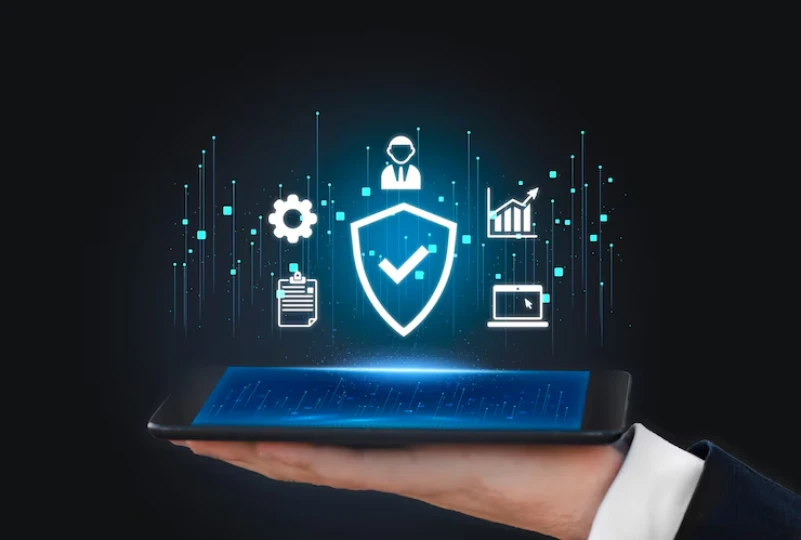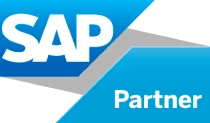In 2025, your business is likely more connected, data-driven, and cloud-enabled than ever. But with that growth comes a very real concern: what is ERP security, and how do you keep your enterprise resource planning (ERP) system secure?
ERP platforms hold your company’s most sensitive data, from financial records and payroll to customer information and supply chain details. When integrated through a CRM-ERP service, this centralized system becomes even more powerful, but also more vulnerable. If your ERP isn’t secure, your entire business is at risk. That’s why ERP security can no longer be an afterthought. It has to be a core part of your strategy.
What Is ERP Security, Really?
ERP security refers to the combination of technologies, processes, and policies that protect your ERP (Enterprise Resource Planning) system from unauthorized access, data leaks, internal misuse, and external threats.
Your ERP houses critical business information, including:
- Financial transactions and records
- Customer and vendor data
- Payroll and HR details
- Supply chain and inventory management
- Strategic reports and analytics
Without robust security, all of this is exposed.
It’s easy to assume that once your ERP is up and running, it’s secure. But ERP platforms are deeply integrated with your business processes, and any weak link, whether from a misconfigured setting or an overlooked user permission, can expose your entire operation.
In simple terms, ERP security is like digital armor for your enterprise operations. It defends the nerve center of your business from being compromised, whether by accident or by design.

Why ERP Security Is Mission-Critical in 2025
ERP systems have grown beyond traditional accounting tools. Today, they serve as the central nervous system of modern business.
Here’s why that matters:
- Most ERP platforms are now hosted in the cloud or are hybrid setups, increasing exposure to external threats.
- Remote work and global teams have expanded access points, making security controls more complex.
- Cyberattacks are more frequent and sophisticated, targeting large-scale data hubs like ERP systems.
- Regulatory compliance (like GDPR, HIPAA, and SOX) demands tighter control over data access and retention.
- A single breach can lead to financial losses, reputational damage, and legal consequences.
ERP security isn’t a technical checkbox. It’s a business survival strategy.
What’s at Stake Without Proper ERP Security?
You might think your ERP vendor has built-in security, and that’s partly true. But no out-of-the-box system can fully anticipate your organization’s unique risks.
Here’s what could go wrong:
- Data Breaches – Exposed customer, employee, or financial data can result in major lawsuits and trust issues.
- Operational Disruption – If ransomware locks your ERP, even temporarily, your operations could come to a halt.
- Fraud – Insider threats can exploit gaps in permissions, leading to financial theft or data leaks.
- Compliance Fines – Inadequate access control or audit trails can put you on the wrong side of regulations.
- Supply Chain Vulnerabilities – A compromised ERP can affect inventory, logistics, and vendor relationships.
In 2025, these aren’t hypothetical risks. They’re playing out in real time across industries.
Key Components of ERP Security
A modern ERP security strategy is multi-layered. It’s not just about tools. It’s about processes, people, and policies working in sync.
Core components include:
- Role-Based Access Control (RBAC): Only the right people should access the right data at the right time.
- User Authentication: Multi-factor authentication (MFA) is essential, not optional.
- Data Encryption: Protect sensitive data both at rest and in transit.
- Audit Logs and Monitoring: Always know who accessed what, when, and why.
- Patch Management: Ensure your ERP software is regularly updated to close known vulnerabilities.
- Incident Response Plan: Be prepared with a documented plan for breaches or suspicious activity.
- Segmentation: Avoid putting all data in one basket. Use network segmentation to limit risk.
- Vendor Risk Management: If your ERP is cloud-based, your vendor’s security practices matter as much as your own.
It’s not about doing everything. It’s about doing the right things consistently.

Cloud ERP Security vs. On-Premise: What’s Different?
As more companies migrate to cloud-based ERP systems, the security conversation has shifted.
Here’s how cloud ERP security differs:
- Shared Responsibility Model: Your provider handles the infrastructure, but you’re still responsible for user access, data protection, and app-level controls.
- Scalability: Security needs to scale with growth. Cloud platforms offer agility, but you must keep pace with configuration.
- API Security: Integrations via APIs can be points of exposure if not properly secured.
- Third-Party Dependencies: You’re now relying on multiple services, each with its security posture.
The cloud brings speed and flexibility. It also demands sharper vigilance.
Human Risk: The Overlooked Threat
Technology alone won’t secure your ERP. Human error remains a major threat vector.
You’ll want to:
- Train employees regularly on phishing, password hygiene, and secure workflows.
- Limit admin privileges to only those who need them.
- Create a culture of security awareness that spans departments, not just IT.
ERP security is everyone’s business, not just your tech team’s.
Signs Your ERP Security Needs an Upgrade
Not sure if your current setup is strong enough? Look out for these warning signs:
- No formal access control or role definitions
- Lack of system monitoring or real-time alerts
- Irregular software updates and patches
- Incomplete or missing audit trails
- No documented incident response process
- Over-reliance on default ERP security settings
Even one of these issues could mean your ERP is exposed. And you may not even know it.

Best Practices to Strengthen ERP Security in 2025
To get ahead of risk, follow these proven practices:
- Map your ERP ecosystem to understand what systems and data it connects to.
- Conduct regular security audits to identify and fix vulnerabilities.
- Define clear access policies with approval workflows.
- Automate log reviews and anomaly detection using AI-powered tools.
- Perform penetration testing to assess real-world security performance.
- Stay current with compliance standards and adapt as regulations change.
Security isn’t a one-time fix. It’s a continuous process. The stakes are simply too high for guesswork.
Building ERP Security into Business Strategy
Treat ERP security as a strategic investment, not just a tech expense. When it’s done right, it delivers more than just protection.
You gain:
- Confidence in compliance
- Continuity in operations
- Trust from customers and partners
- Agility to scale without risk
- Visibility across your digital infrastructure
ERP security doesn’t slow your business down. It clears the path for smarter, safer growth.
In 2025, ERP security is no longer optional. It’s foundational. The companies that thrive will be the ones that treat it as a business priority, not just an IT project.
You don’t have to do it alone.
How Webvillee Helps
Webvillee brings technical precision and strategic clarity to ERP security.
We assess your system’s current risk profile, close vulnerabilities, and design custom security frameworks tailored to your industry.
Our team helps you future-proof your ERP, whether you’re on SAP, Oracle, Microsoft Dynamics, or a custom platform.
With Webvillee, you gain more than security. You gain peace of mind.
Let’s secure what drives your business forward.
Ready to strengthen your ERP system? Get in touch with our team to secure what drives your business forward.

